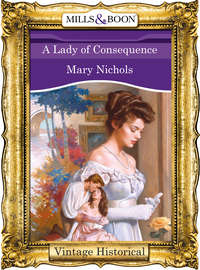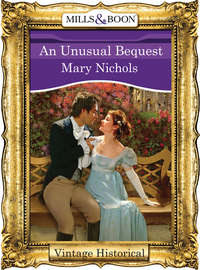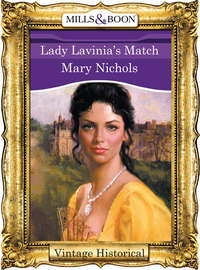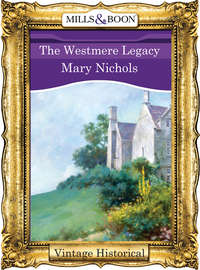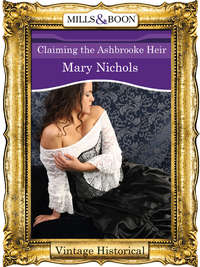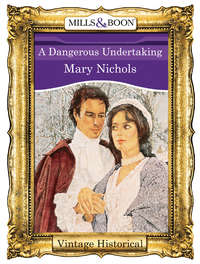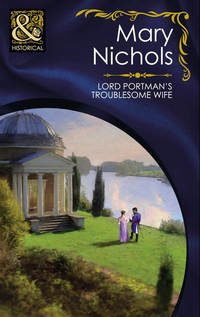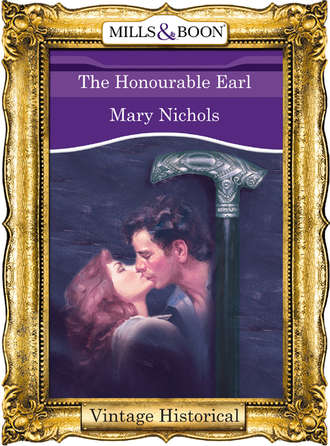
Полная версия
The Honourable Earl
‘He has not been long in the district,’ her mother said. ‘He is not acquainted with the past.’
‘Someone will soon tell him, you can be sure.’
‘Then you must engage his attention and make him see the advantages of the match before he has time to listen…’
‘Oh, Mama, that is surely deceitful.’
‘No, he will take no heed of gossip when he gets to know you and realises what an excellent wife you will make.’
‘Wife and mother,’ Lydia added bitterly. ‘Don’t forget his daughters.’
‘Oh, my dear child, I am so very sorry it has come to this but I cannot see any other way out. If your father had lived or even if Freddie…’ She could not bring herself to go on. The absence of her elder son seemed to be an even greater cross for her to bear than the death of her husband.
‘Can I not wait? Someone else might come along.’
‘If you are harbouring romantic notions about falling in love, Lydia, I should caution you against allowing them free rein. Life is not like that. And especially our life.’
‘No, I suppose not.’ Lydia sighed heavily. She could not upset her mother by saying what was in her heart: the anger and despair, the black hate which she had pushed into the background but which now returned full force.
‘If you do not care for Sir Arthur, there is Robert Dent,’ her mother said. ‘He is still single and will come into his father’s wealth, even if it has been got by industry.’
‘He is a rake and a gambler,’ Lydia put in. ‘Living with him would be like twisting the knife in a wound which will not heal. He could have stopped that duel long before Papa ever got there. He should have refused to be Freddie’s second.’
‘Freddie would have found someone else to do it. But you are right, Robert Dent’s reputation is a little tarnished and I would not want my daughter to be made unhappy by a profligate husband, however rich.’
‘There is always the Comte de Carlemont,’ Annabelle put in with a giggle. ‘Such a dandy, but very polite. He would not care about the gossip. He would carry you away to the French court now that the war is ended. He might even find positions there for Mama and me.’
‘I have no wish to go to France,’ Lydia said and refused to say another word on the subject. She tried not to think about it, to look forward to the ball as Annabelle was doing and dream of finding a husband who lived up to her very high ideals. He must be handsome and strong but, more than that, he must be kind and attentive and not given to gambling. He would love her devotedly and not even think about taking a mistress because they would be so happy together, he would never see the need. And he might restore Freddie to them…
She sighed. What was the good of dreaming? They had no idea where her brother was. He had written soon after he left, telling them that he had enlisted but then nothing. They did not even know if he were alive or dead.
They were about to set aside their sewing and have dinner when Janet came to say one of the grooms from Colston Hall was in the kitchen, with a message for Mrs Fostyn. Lydia and Annabelle looked as each other as their mother rose to go to speak with the man.
‘What can he want?’ Lydia mused, after Anne had left the room. ‘I cannot understand why Mama continues to bow down to that man.’
‘You mean the Earl? He has done nothing wrong.’
‘What do you know of it? You were not there.’
‘I heard what happened. Everyone did. It was his son who shot Papa, not him.’
‘He sent Freddie away. He took our home from us.’
‘He had to. We couldn’t have gone on living in the Rectory when the new rector came, could we? And he lets us live here.’
‘That’s no reason for Mama to hurry over there whenever the Countess throws a fit.’
Their mother returned before they could continue the conversation. ‘His lordship has had a fall,’ she said. ‘They need me at the Hall.’
‘Why, Mama? His lordship has servants in plenty if he needs a nurse. I do not know why you have to go.’
‘I must. Lydia, look after everything while I am away. Do not wait dinner for me. I will be back as soon as I can.’
Janet fetched her cloak for her and she flung it over her shoulders, lifted the hood over her curls and left with the servant from the Hall.
Mrs Fostyn did not return until nearly dawn the next morning. Lydia, who had been sleeping fitfully, heard her step on the stair and hurried out in her nightgown to meet her. She looked pale and tired and her eyes, though dark-rimmed, were bright with tears. ‘Mama, what has happened? Why have you been so long?’
‘He is dead, Lydia,’ she said flatly. ‘The Earl of Blackwater is dead.’
‘Oh.’ She could not bring herself to say she was sorry. ‘How did it happen?’
‘I will tell you all about it later. I am tired. I must rest.’
‘Of course. I’ll wake Janet to help you.’
‘No, I can manage. Go back to bed or you will disturb everyone. Later we will talk.’ She turned from Lydia and went into her own room, shutting the door softly behind her, shutting her daughter out. Hurt and feeling somewhat resentful, Lydia returned to her own room.
It was nearly noon before her mother put in an appearance in the drawing room, but by then she looked more like her normal self. She smiled at the girls who, for want of anything else to do and to keep their fingers busy, were continuing their needlework. ‘Let me see how much you have done,’ she said, taking Lydia’s from her and inspecting the stitches. ‘Very good, very good indeed, though I am not sure we shall be able to go now, what with the Earl—’
‘Oh, Mama, surely you will not cancel going because he has died?’ Annabelle wailed. ‘He is not a relative. We do not have to go into mourning for him.’
‘No, but the organisers may well decide not to hold the ball in view of the fact that his lordship was one of its main sponsors.’
‘Oh, no.’ It seemed to Lydia that every bad thing that had happened to them, every disappointment, could be laid at the door of the Earl.
In the event the ball was not to be cancelled, simply postponed until after funeral, when his lordship’s heir might decide whether it should take place or not. His heir. Lord Ralph Latimer was new Earl of Blackwater, though it seemed no one knew where he was to be found. ‘I was told by his lordship’s valet that there has been no contact between him and the family since…since it happened,’ their mother told them. ‘I thought they corresponded, that his lordship knew where he was, but if he did, he died without saying. I believe the lawyers are looking into it.’
‘How did his lordship die, Mama?’ Lydia asked. ‘You said it was an accident.’
‘Yes, he fell down the stairs from the upper floor to the gallery.’ She gulped hard and went on. ‘The doctor said his back was broken.’
‘But he was conscious. He asked for you?’
‘Yes.’
‘Why you? Why not his wife?’
‘She was not well… Oh, this is so difficult. His wife has never been the same since Ralph went away. She has not always been in her right mind. Sometimes she raves, sometimes she is quite violent towards him. I believe he went to her room to visit her. She…you must promise not to say a word of this to anyone…’ They nodded and she went on, ‘She attacked him. It is why he fell. They have had to restrain her.’
‘You mean she pushed him?’
‘I believe so.’
‘Poor lady,’ Lydia said, for the first time feeling some sympathy for her.
‘Yes. But you see why she would have been no use to his lordship.’
‘But you were.’
‘Yes. We have…we have a strong bond. We have both lost those nearest to us by a cruel blow…’
‘Is that how you see it? How can you be so forgiving? And if Lord Latimer—I mean, the new Earl comes home, how will you greet him? With a curtsy and a smile?’
‘I do not know,’ her mother answered. ‘We shall have to wait and see.’
The funeral could not be delayed when no one knew if the new Earl had even been informed of the tragedy. Some said he had died of a fever in the tropics; some said he had served as a common soldier and died in battle. Others said he was alive, but would never dare show his face. Others, who sympathised, said he would see the Fostyns off his land as soon as he came, which was no more than they deserved.
The day before the funeral, a second tragedy struck. The Countess escaped those employed to look after her and threw herself from the roof of the Hall. Grief, everyone said, grief and the fact that her husband had turned to Mrs Fostyn when he lay dying and not to his wife. Lydia was furious on her mother’s behalf and was all for making public what her mother told her about the Countess’s state of mind, but Anne refused to countenance such a thing and said the Earl and Countess should be allowed to lie in peace.
There were two funerals instead of one and still the speculation went on about the new Earl and what was to happen to the Hall if he could not be found. And no one speculated more than the Fostyn family. They lived in the dower house only by courtesy of the dead man. Where would they go if they were turned out? How would they live?
‘We must hold our heads up, pretend nothing is wrong,’ their mother said, though Lydia was not sure how much of the gossip she had heard. ‘We will finish these gowns. If there is no Victory Ball, there will be others.’
Which was how Lydia and Anne came to be in Chelmsford a month after the funeral, searching for pink velvet ribbon for Annabelle’s gown and braid to match the brocade of Lydia’s. Anne wanted to visit an old friend and Lydia suspected she needed someone to confide in, someone to whom she could tell her troubles; talking to her daughters was not the same thing at all.
‘You look for the ribbon, Lydia, and meet me in the lending library.’ She smiled suddenly. ‘I do not know how long I shall be but, if you are surrounded by books, you will not mind waiting.’
They parted in the street. Lydia watched her mother go with an ache in her heart, wishing she would confide in her more than she had. But when she had spoken of her problems, the day before the Earl’s death, Lydia admitted she had not taken her as seriously as she should have done. And now her mother had shut her out, taken control of herself, and was determined to look after her brood no matter what. Lydia sighed. She had to do something to help and the only thing she could do was to consider marriage.
She pulled herself together and went into a tiny haberdashery shop where she found the pink ribbon, but there was no match for the braid. She tried other establishments to no avail and was just leaving the last shop when it started to rain heavily. She stood in the doorway, waiting for it to ease, when she was joined by a young man with an umbrella. The doorway was narrow and the rain was pouring off the overhanging roof on to her shoulders.
‘Allow me,’ he said, holding the umbrella over her. ‘It is big enough for both of us if we stand closer.’
‘Thank you,’ she said primly, but declined to move nearer to him. He was already too close for her peace of mind.
Her first impression of him was his height and the breadth of his shoulders as he stood beside her. The second was the fineness of his clothes. He was wearing a coat of a fine worsted cloth lined with red silk. The collar and cuffs of the sleeve were faced with the same silk embroidered with gold and silver thread. It was an expensive coat, but he wore it casually as if it was of no importance to him that it was being spotted with rain. She tilted her head up so see his face and was taken aback to find him scrutinising her as if he meant to memorise every detail.
For a moment she continued to look up at him, noticing that his features were even, his nose long, almost haughty, and his skin was tanned and crinkled round his mouth as if he were more used to laughter than frowns. He wore a dark wig dressed away from his face with long side curls and the back tied with a narrow grey ribbon. His dark eyes were looking at her with a slightly mocking expression and she realised that she, too, had been staring and cast her eyes down.
She was met with the sight of an embroidered brocade waistcoat with a row of silver buttons from the neck, where a lace cravat frothed, down to his narrow waist. His long legs were clad in knee-length fitted breeches tucked into shining boots, which emphasised his muscular calves. Embarrassed, she turned to stare out at the rain-sodden street where puddles were gathering and filling the gutter.
‘I never thought an article like an umbrella would stand me in such good stead,’ he said with a chuckle. ‘I was in a mind not to bring it out today, but I am glad that I did.’
She was aware of the undercurrent of meaning he put behind the words and felt the colour flare in her face. ‘Indeed, sir, you would have been very wet else.’ She risked a glance up into his face and smiled. ‘As it is, I do believe you are already very damp. Pray, hold it over yourself and not me. I have my cloak.’
‘I do not mind the rain. I am used to it. Where I come from, the monsoon is a hundred times more wet.’
She laughed. ‘Wet is wet, sir, how can one rain be wetter than another?’
‘Oh, I assure you it is. Have you ever been to India? No, I will wager you have not, but if you had, you would know exactly what I mean.’
India, she mused. Then he was a nabob, grown rich on trade and made bold by it. But the strange thing was that she was not repelled as she should have been. She found herself drawn to him, as if there was something from him to her, a fine but strong thread, pulling her to him. ‘I should like to travel some day.’ she said. ‘But you are right. I have never been away from England in my life.’
‘Not even to London?’
‘Once I went, a long time ago, but not since—’ She stopped suddenly and then went on. ‘Not since I was a child.’
He detected the wistfulness in her voice and wondered what had caused it. He looked down at her. She was slight; the top of her head hardly reached his shoulder, but he sensed an inner strength, a steely determination. She was no wilting violet. Her eyes, looking up at him without fear, were hazel, but they had golden lights in them that glowed when she smiled like the tiny lights of the will o’ the wisp that twinkled over the marshes on dark nights. Her hair was thick and a glorious russet brown. The cloak which covered her gown was a plain grey broadcloth tied at the neck with matching ribbon, not the garment of a young lady from a wealthy family, but not poverty-stricken either. ‘Then I hope you have your wish, my lady.’
‘Thank you, but I am not entitled to be called lady.’
‘You are in my book,’ he said softly. ‘For want of a name.’
She ignored his hint to provide her name and turned from him. ‘I do believe the rain is easing and I shall venture forth.’
‘Must you? I was just beginning to enjoy myself.’
‘I have arranged to meet my mother at the library. She will be waiting for me.’
‘Then allow me to escort you. The rain has not quite stopped and you will need my umbrella.’
‘It is but a short step, sir. I would not put you to the trouble…’
‘It is no trouble, it is a pleasure.’ He fell into step beside her, carefully holding the umbrella over her. ‘Do you come often to Chelmsford?’
‘Occasionally when I need something I cannot buy in the village.’
‘Which village?’
‘Oh, it is such a small place, you would not have heard of it, I am sure.’ He was flirting with her, she knew, and she ought not to be talking to him at all, but they were unlikely to meet again, so where was the harm? And keeping him guessing was all part of the fun. She stopped at the door of the library. ‘Here we are. I said it was only a step, did I not? Thank you for your escort, sir.’
He made her a sweeping leg, which was not easy considering he was holding an umbrella, and it made her laugh. ‘You should laugh all the time,’ he said softly. ‘Laughter lights up your eyes, brings them to life.’
‘Sir, you are too forward.’
He sighed. ‘It was ever thus with me. But one must seize opportunities when and where they occur, don’t you think? Take the bull by the horns. Shall we meet again?’
‘That, sir, is in the hands of Providence.’
‘Then I hope Providence will be kind to me.’
She smiled as he left her, striding away down the street, his umbrella bobbing up and down as he lifted it clear of other walkers who were venturing out after the downpour. She supposed it would be the last she ever saw of him. She rarely came to Chelmsford and, even if she did, the chances of bumping into him again were slight.
She turned to go into the library, still smiling. He had been so handsome and evidently wealthy, though without pretensions to grandeur and certainly not over-proud, exactly the sort of man her mother said she should look for as a husband. But you did not pick up husbands in the street, did you? And she knew nothing about him—he might be married, or disreputable. And even if he were not, he would not think of her as a wife. Sensible men did not pick up wives in the street either. Mistresses, perhaps, someone with whom to have a short-lived dalliance. He must have thought she was that kind of girl. But he had called her ‘my lady’. His idea of a jest, no doubt. She was glad she had not told him her name or where she lived.
Her mother had not yet arrived and Lydia spent the next half-hour browsing among the books, though they came to Chelmsford too infrequently for her to think of taking out a subscription. She smiled. If she did, it would be an excuse to come again. But then she sobered immediately; it would be what her mother called an unnecessary extravagance and, since her revelation about their finances, she must consider every penny carefully before spending it. Even ribbons and braid were luxuries.
‘Ah, there you are, Lydia.’ She heard her mother’s voice behind her. ‘I am sorry I am late. I stayed until the rain stopped. Did you get wet?’
‘No, I sheltered in a doorway.’ She did not know why she said nothing about the young man and his umbrella. Perhaps because she was determined to forget him and that strange pull he had over her. She had spoken to him for only a few minutes and yet he had left an emptiness behind, a promise unfulfilled, a glimpse of sunshine even in the rain, and she felt sad. And isolated.
They walked out to where their only outdoor servant, the ancient Joshua Partridge, who had been groom and driver to her father, waited with the old coach and elderly horse. As they trotted through the now-crowded streets towards home, Lydia looked about her for the sight of a bobbing umbrella. But he had gone, disappeared as if he had never been.
Ralph Latimer, fourth Earl of Blackwater, returned to his carriage which he had left at an inn on the outskirts of town, climbed in and directed his coachman to take him home to Colston Hall. Home! How often, in the heat and red dust of India, had he dreamed of coming home to the cool green of England, of being restored to the bosom of his family and taking his place beside his father, learning to take over the running of the estate, the welfare of the villagers, of hunting and fishing and sailing as he had done as a boy.
Thinking of his boyish pursuits made him think of Freddie Fostyn. They had been almost inseparable, sharing their lessons in the schoolroom at the Hall, getting into mischief as boys always do, vying with each other on the sports field, riding and gambling and talking about women.
It was women that had been their undoing or, to be more precise, one young lady they had met on picnic on the banks of the Cam one day soon after Freddie had joined him at Cambridge. The picnic had been arranged by Mrs Henrietta Gordon, a plump matron who had what was laughingly called an Academy for Young Ladies, supposedly a school for the education of the daughters of the middling classes. Everyone except the most naïve, and that apparently included Freddie, knew the girls were no such thing and their mission in life was of an entirely different kind.
Ralph had found one of the girls very much to his liking and had enjoyed flirting with her, unaware that Freddie had fallen head over heels in love with her. It was only later, when they had returned home for the summer vacation that he had told his friend, laughing the while, that a certain young lady had been more than receptive to his advances and he had invited her to stay in rooms he had taken in a house in Malden, so that they might continue their dalliance during the vacation. In a year or two he would have to settle down, but until then he would allow himself to dip his toe in the waters of sexual experience just as every other young man of his acquaintance did. He had hoped Freddie would not mind forgoing their planned sailing trip around the coast to Worthing.
Freddie had appeared surprised and reminded him in tones that sounded just like his strait-laced mama that he was promised to the Duke of Colchester’s daughter, Juliette. ‘Not yet,’ he had said. ‘The parents are still haggling over the dowry and marriage contract, and while they do, I intend to have my fun.’
‘And who is this fille de joie and where did you meet her?’
Freddie was two years younger than Ralph and, a rung or two lower down the social scale; though that had never meant a thing as far as Ralph and their friendship was concerned, Freddie was decidedly touchy about it, especially when it came to women. Ralph had a way with them, a flattering manner and, besides that, he was wealthy enough to give them expensive trinkets.
‘At Mrs Gordon’s picnic. Her name is Fanny.’
‘Fanny?’ Freddie had repeated, giving every appearance of being shocked. ‘You are speaking of Miss Fanny Glissop?’
He should have been warned by the fierce look in his friend’s eye, the way his jaw began to work, the clenching of the fists, that all was not well. But he was busy casting a rod into the sluggish waters of the River Crouch, which bordered his father’s estate, and did not look at him. Instead he said, ‘If that’s her name, yes, I never enquired the rest of it.’
‘How could you insult her so?’
‘Insult her? I did not insult her, rather I flattered her, for I am very particular as to where I lay my head.’ He had laughed with the exuberance of youth. ‘And my body. And I shall enjoy an hour or two amusing myself discovering more of hers—’
Freddie’s blow was so unexpected and delivered with such force it toppled him into the river. He came up spluttering and began to clamber out, holding out his hand to be helped up the bank. Freddie ignored the hand and glared at him with pure venom in his eyes.
‘What’s the matter with you, man?’ Ralph had demanded. ‘Take my hand and help me out. You will have your little jest, but for the life of me I cannot think what brought it on.’
‘Can’t you? Can’t you? You insult a lady, a young and innocent lady, a pure flower who has known nothing but her parents’ love, and talk of defiling her!’ His voice reached a shriek of outrage. ‘You are an abomination…’
He had climbed out without help and stood facing his friend, dripping water from his fine kerseymere coat and buckskin breeches, ready to grasp him by the shoulders and smile away his fury. ‘Freddie, my old friend, you know she is nothing of the sort. Why, she would not be at Mrs Gordon’s establishment if that were so…’
Even then, Freddie did not understand and pushed him away. ‘You are a monster, a spoiler of women, a pervert,’ he yelled.
Instead of continuing to try to placate him, Ralph had lost his own temper and advanced on his friend with fists raised. ‘You will take that back, Freddie Fostyn, and apologise.’
‘I will not. Never.’
‘Then I will have to fight you and you know I can best you.’
‘Call me out, then.’
Such a thing had never crossed his mind. All he wanted was to teach Freddie a lesson, show him that he could not be insulted with impunity, and fisticuffs was what he had meant. ‘Don’t be a fool.’
It was almost the worst thing he could have said. It put Freddie in his place, poured scorn on him, laughed at him. And Freddie could not take it. With a roar of rage, he took a step towards Ralph and, for want of a glove, slapped his face, first with the palm and then the back of his hand. ‘My representatives with call upon you,’ he said and strode away.


